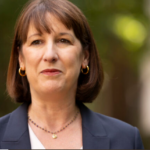Middle-class parents have expressed support for the government’s decision to impose a 20% VAT charge on private school fees, according to Education Secretary Bridget Phillipson. Speaking ahead of the policy’s official launch this Wednesday, Phillipson highlighted that many families are increasingly “priced out” of independent education due to rising costs and are now seeking stronger state-run alternatives.
With some boarding schools charging upwards of £50,000 annually and the average private school fee now around £18,000, Phillipson argued that “pushy middle-class parents” can no longer afford such expenses. She believes this supports Labour’s position that removing tax breaks for private schools will generate an estimated £460 million for the 2024–25 financial year, a figure that could rise to £1.7 billion by 2029–30. The funds, she says, would support 6,500 new state teachers and provide additional mental health resources for students.
Despite opposition from private schools, which have seen their fees increase by 75% in real terms since 2000, officials at the Department for Education (DfE) predict the VAT hike will only reduce private school enrollment by 6%, with many pupils transferring to the state sector. Phillipson dismissed concerns over widespread closures as “scaremongering,” pointing to the smooth integration of pupils from Ukraine and Hong Kong into state schools without significant issues.
Private institutions are responding to the VAT change in different ways. Some, including prestigious schools like Eton and Westminster, are passing the full 20% charge onto parents. Others, such as Queen Ethelburga’s in York, are limiting fee increases to around 3%. Schools can reclaim VAT on certain expenses like capital projects and educational supplies, reducing their net VAT liability to approximately 15%. Phillipson emphasized that many private schools have “no good reason” to pass the full burden onto parents.
The Independent Schools Council has voiced concerns that the new tax, combined with increased employer national insurance contributions and the loss of charitable business rate relief, has left schools in a difficult financial position. For instance, Carrdus School in Oxfordshire announced it will close in July 2024 due to these mounting pressures. However, Phillipson maintains that the additional funding from the VAT will strengthen the state school system, calling it a “badge of honour” if the move leads to improved standards across the country.









